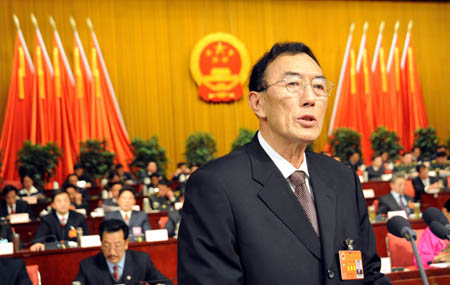Image:

Link:
Body:
DEC 23, 2015, 5:00 AM SGT
BEIJING • The Chinese-appointed former governor of Tibet has warned that the government needed to do more to tackle ethnic discrimination, state media said, in rare comments by a senior official on an issue more commonly taken up by rights groups.
Mr Qiangba Puncog, an ethnic Tibetan who is now a deputy head of the standing committee of China's largely rubber-stamp Parliament, was speaking yesterday at an ongoing committee session, the official Xinhua news agency reported.
"In recent years, there have been recurring instances where people with ethnic backgrounds, even Han people, were discriminated against or denied access to certain service trades," the report quoted him as saying.
He said transport hubs and security checks at border posts and hotels had seen this problem.
Despite repeated efforts to implement China's ethnic policies, the problem had "generated unwanted social impact and caused strong public reactions from ethnic regions", he added.
"Such practices which run counter to the regional ethnic autonomy law must be resolutely rectified," the official said.
Places like Tibet, Xinjiang and Inner Mongolia, which are officially self-governing regions with large minority populations, are supposed to have large-scale autonomy, though in reality, Beijing holds the reins.
Rights groups say Uighurs, a mostly Muslim people who call Xinjiang home, have borne the brunt of discrimination in recent years following increased security after an uptick in violence there.
Beijing says it is battling Islamist militants in Xinjiang. Exiles and many foreign experts say the root of the unrest has more to do with Chinese government controls on the Uighur religion and culture.
China denies limiting freedoms in Xinjiang.
REUTERS
